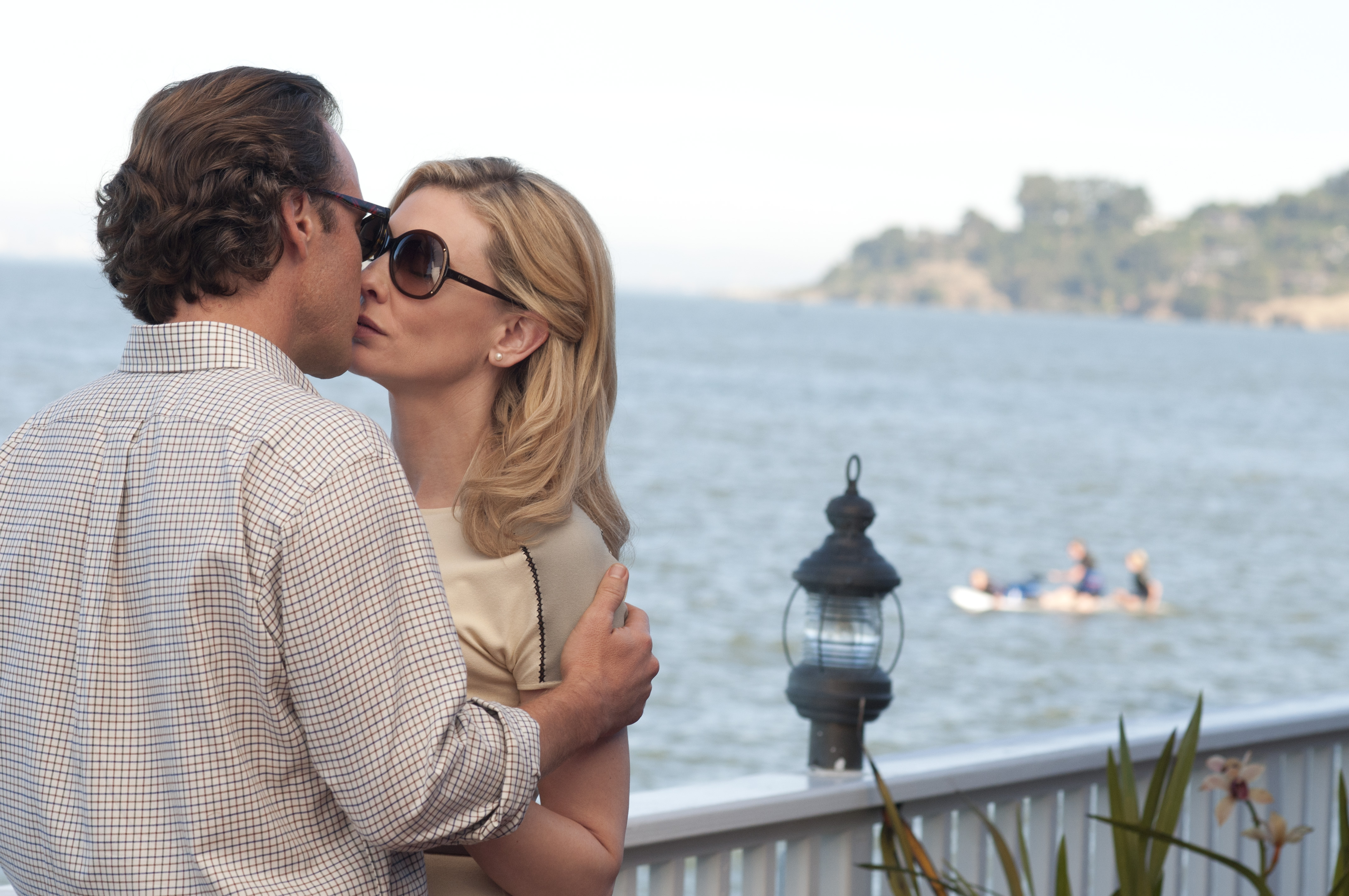Yuck. The sum of Blue Jasmine’s parts – acting, character development, storytelling – are significantly greater than the whole of Woody Allen’s new film. The New York director creates an empty picture with tonal problems and lack of narrative direction. New York neuroticism and vapid speak can be endearing when used in the right circumstances. Here, the circumstances help showcase just how out of touch Woody Allen is with the common man.
Jasmine (Cate Blanchett) has just moved in with her sister Ginger (Sally Hawkins) in San Francisco. Jasmine has just lost everything because her husband Hal (Alec Baldwin) just got indicted for white-collar crimes. In San Francisco, she tries to pick up the pieces: she gets a job as a dentist’s (Michael Stuhlbarg) assistant, and she eventually meets Dwight (Peter Sarsgaard): a widowed wealthy man. However, Jasmine’s move has caused friction for her sister’s life, drawing ire from Ginger’s ex husband (Andrew Dice Clay) and her current boyfriend (Bobby Cannavale).
The poor are really taken through the grinder in Blue Jasmine. Most of them have supremely dirty looks and overtly bombastic personalities that draw ire from people like Jasmine. More importantly, the lower class characters are treated in a less intelligent matter. Ginger willfully will listen to her sister despite having suffered from her repeatedly. Ginger’s boyfriend accepts the wandering eye of his beau to provide a tidy happy ending for her. Some of Woody Allen’s point is showing how content the simple can be and how wretched smug comfort comes across. Unfortunately, the results feel disingenuous and shameful to hard-working people.
The tonal direction gives Blue Jasmine a weird feel that keeps the film from becoming poignant. Woody Allen appears to be trying to turn his conventions on their head since Blue Jasmine is more drama than comedy; however, the opening scene is played for laughs and supporting characters are introduced for comic relief lots of the time. These inconsistencies keep Jasmine’s really tragic story from achieving maximum potential. When focused on her compliance to her life trajectory and Jasmine leading a day-to-day normal life, Blue Jasmine is very forceful, but providing more supporting character depth distracts from the central story to the detriment of Blue Jasmine. Also, to give the dramatic parts of the story more force, plot devices like overt character flirtation or a spontaneous street run-in force the plot forward and reek of over-directing.
The saving grace for the film is the acting. Despite my disappointment, Cate Blanchett perfectly stands in as the Woody Allen surrogate. Her Jasmine is a shameful hated character with few redeeming qualities. Blanchett generates more sympathy for Jasmine than the character probably deserves. Sally Hawkins, perky as ever, gives Ginger a nice mix of spunk and naiveté. Bobby Cannavale and Andrew Dice Clay hickory dickory dock their way into solid supporting roles with a nice amount of depth, and Louie CK plays a more subtle version of his own TV character.
It is true that there are lies we tell ourselves to make our lives seem better than they may actually be. Woody Allen gets to showcase some of his own lies with Blue Jasmine, like ineptitude toward the working class or the plight of the privileged. I am guilty of this as well; I kept telling myself that Blue Jasmine was going to get better as the story went on, but eventually I realized that it was not to be.

